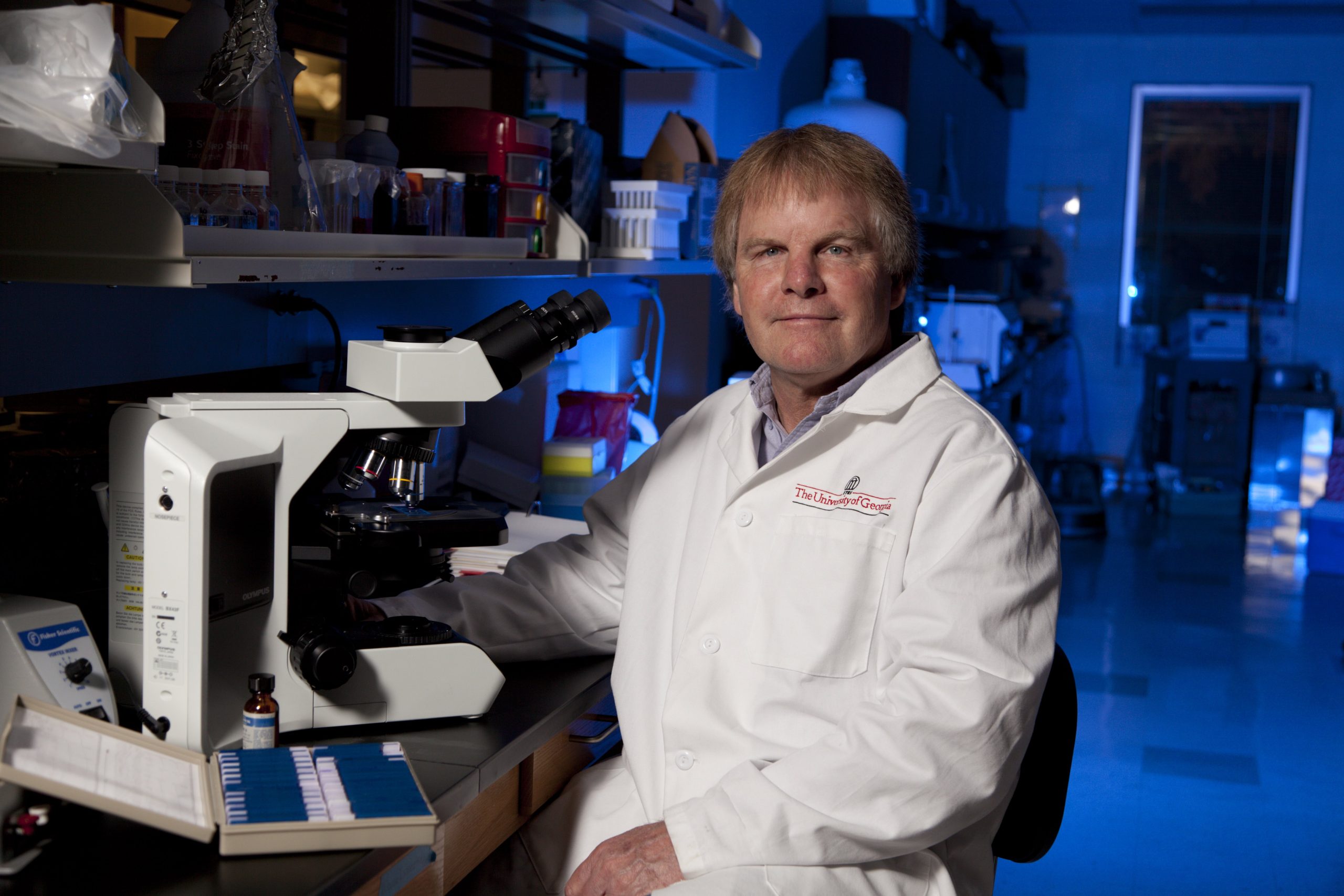
Veterinary medicine as a profession is incredibly diverse, which is an excellent stimulus by itself. When you have the opportunity to ask research questions and see the answers applied to real-world clinical scenarios, it just doesn’t get any better.
Josiah Meigs Professor
In addition to learning the material, I hope my students see how much I enjoy what I do. I remember teachers that injected humor into lessons and made learning fun for me and I hope I’m able to do this for my students.
I’ve been a professor at the University of Georgia for more that 30 years. My wife and I joined the faculty at UGA in January of 1981, primarily because we fell in love with Athens. I am currently a professor in the department of large animal medicine where I teach veterinary students, train graduate students and collaborate on research projects.
One of my career highlights has been working with other professors and students in the Vet Med college working to create interactive 3-D teaching materials that help make complex subjects more understandable than they were previously. Our work received the Dr. Frank Netter Award for Special Contributions to Medical Education and is the only veterinary program to receive that distinction.
I am also a part of a cross-campus project working on incorporating 3-D technologies into veterinary education with the goal being to increase student engagement in science. This NIH-funded project started as a collaboration with Steve Oliver in the College of Education and three local high school science teachers, and we are interacting with teachers and students in several schools in Georgia. I’ve never been a part of anything as exciting and potentially far-reaching as this – our main focus now is obtaining the research support needed to keep it going!
For the first 15 years of my career, my research focused on the life-threatening complications that occur in horses with abdominal diseases. Because I worked as an equine surgeon in our College’s Teaching Hospital, I was able to incorporate our latest research findings into discussions with students about the horses being treated in the hospital. My primary focus has been on the development of new teaching aids, which I’m able to incorporate directly into courses in the veterinary curriculum or see being evaluated in the local high schools.
My ideal student is attentive, interested, and willing to laugh at him/herself. In addition to learning the material, I hope my students see how much I enjoy what I do; I remember teachers that injected humor into lessons and made learning fun for me and hope I’m able to do this for my students.
Learn more about James Moore.
